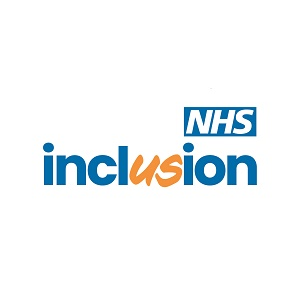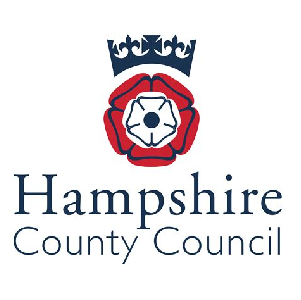Drug & Alcohol Rehab in Hampshire

How Does Rehab Work?
Rehab involves the support services and therapies that people who have drug and/or alcohol dependence receive to beat addiction and subsequent relapse. Once a medical assessment and detox are completed, individuals will start addiction treatment in the form of therapy. Treatment is made up of therapy from a professional counsellor, the attendance of group meetings as with a 12 Step programme, and the option of inpatient or outpatient rehabilitation. residential rehab services require that clients live at the residence or centre for the duration of therapy. Outpatients will attend therapy by counselling or meetings but will not stay at the facility. Consultation with a medical expert plus an individual assessment can help decide if inpatient or outpatient services are suitable for your needs.
What Happens During Residential Rehab?
Taking the brave step towards recovery starts with rehabilitation. It is a process, and it takes time but with dedication and support relapse can be prevented. If you’re unsure about what rehab entails, we provide a breakdown of what to expect.
Prior to entering treatment every individual will be assessed by a medical professional. The aim is to create a treatment plan suited to individual health and wellness needs. This is particularly important for those with a history of addiction and comorbid mental conditions including depression, anxiety or bipolar disorder.
An assessment is followed by detox. Detox is a structured process and is performed within residential rehab or at home with support from a medical professional (outpatient services). During this period, individuals abstain from drugs and/or alcohol use until the drug/alcohol is no longer present in the body. Because of the challenges associated with withdrawal, a medically supervised detox from drugs and alcohol is advised.
Rehab includes meeting with a counsellor for private & group sessions, participation in skill-building activities as with an inpatient or residential rehab, or group meetings that are common with outpatient 12 Step programmes. We look at the different phases of rehab in further detail.
1. Assessment

To receive the best treatment for your needs, an assessment will be the first stage of the recovery approach. Reviews are performed by a medical professional and will include a telephone screening. The professional asks questions concerning your state of health, your substance use, any history of addiction, and whether you may have any comorbid mental health issues. A telephone assessment supplies staff with important information that will help to safely handle the detox process.
When you wish to pursue treatment for drug and alcohol addiction, a medical assessment needs to be completed. Assessments will guide therapy because it provides staff with the information, they need to develop a tailored treatment plan or advise on the appropriate intervention.
2. Detox

Detox involves the cessation of drugs and alcohol from the body. With professional help, it is safely facilitated and is most commonly monitored in a private rehab because of the dangers associated with withdrawal.
Medical detox is often recommended because it helps medical staff to oversee withdrawal symptoms that may develop. Withdrawal from drugs or alcohol can be uncomfortable and relapse may occur if not managed within a treatment centre facility. Medically assisted detox can ease the process by supporting clients and providing medical treatment to reduce withdrawal symptoms. During an individual assessment, a professional will determine which approach is best suited to a comfortable detox and entry into therapy thereafter.
3. Therapy

Therapy includes the one-on-one and group sessions you will attend with a qualified therapist, counsellor, and support staff. Treatment is delivered in both a residential rehab or as part of an outpatient service. The direction for therapy will depend upon individual circumstances.
Step by Step Process for Residential Rehab
To understand your medical and mental health history.
Arrange a suitable date to begin your journey to recovery.
Begin the managed withdrawal process from substances including alcohol.
To understand the root cause of addiction and how to overcome it.
Aftercare is provided to help manage the risk of relapse.
To help heal the wounds that addictive behaviour has caused others.
Find your Nearest Rehab Centre near Hampshire
The nearest rehab centre is ARC – Drug & Alcohol Rehab Center.
Address: ARC – Drug & Alcohol Rehab Center, 54 Northern Rd, Cosham, Portsmouth PO6 3DP, United Kingdom
Call 0333 4444 432 to discuss your alcohol or drug rehab requirements and any other questions you may have about the process of residential rehab.
Outpatient Addiction Services in Hampshire
Outpatient addiction services are available for those who do not wish to commit to a residential facility or require a more affordable option for treatment. To help you with the right treatment, we provide a breakdown of outpatient services compared to residential ones.
When you enter into an outpatient programme, you will be expected to meet with a therapist, support counsellor, or group worker once or twice a week. Rather than stay away from home, you can continue to attend to work commitments and care for your family while you receive therapy for dependence.
When you have decided that outpatient treatment is an option you wish to pursue, the next step is to find a suitable programme offered by a CQC registered organisation or charity.
The Benefits of Outpatient Services
Private Outpatient addiction services also provide personalised care for those looking for optimal support and chances of recovery. – Owing to the flexible arrangements provided by outpatient care, it can facilitate a large range of individuals and financial situations. Recovery sessions are typically attended one or twice weekly under the guidance of a certified therapist. – It is more cost-effective compared with an inpatient programme.
The Challenges of Outpatient Services
While one stays at home and takes part in outpatient programmes, they may be at higher risk of relapse due to being exposed to triggers and easy access to drugs or alcohol. Another point to consider is that free outpatient addiction services – offered by the NHS and other UK-based charities – do not provide a bespoke treatment plan and waiting lists are to be expected.

How Much Does Rehab Services Cost in Hampshire?
Residential rehab can cost £1500 – £4000 per week. Understanding how much other addiction treatment services cost requires a closer look at the services included. Residential rehab is the most costly of the two; however, there are alternative organisations and providers including charities offering free addiction treatment services for qualifying individuals.
One example of a free addiction treatment service is that provided by Turning Point. Turning Point provides a variety of structured support programmes to help with both drug and alcohol problems. You can refer yourself to the service via their website. Aside from charities such as Turning Point, you should consider private counselling or one of the many free support groups that include Narcotics Anonymous (NA), Cocaine Anonymous (CA), and Alcoholics Anonymous.
Support Groups in Hampshire

Winchester Courage To Change Online
Friends Meeting House, 16 Colebrook St SO23 9LH

Winchester Practice These Principles Online
Friends Meeting House, 16 Colebrook St SO23 9LH

Winchester Beginners Online
Friends Meeting House, 16 Colebrook St SO23 9LH
The Pros and Cons of Seeking Treatment in Your Local Area
Pros
1. You are familiar with the area which may provide a layer of comfort/safety.
2. Loved ones can easily travel to visit or are close by.
3. You may save on the costs of travelling long distances for addiction treatment, or free services may only be offered in your area of residency.
Cons
1. A local environment means access to drug dealers or other triggers. This is more of a concern if you decide upon outpatient programmes.
2. Not considering locations outside your local area could equate to a missed opportunities for more valuable and rewarding programmes.
3. Addiction treatment services that are close by do not always provide the best standard of treatment.
If you are unsure of how to look for a rehab service you can trust, consider the CQC. The CQC website offers listings of rehabilitation services and organisations that are ranked according to the standard of its services.


